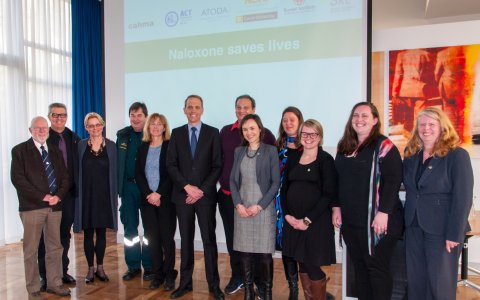Evaluation supports take-home naloxone Australia-wide
The Australian Capital Territory’s opioid overdose management program, which makes take-home naloxone (THN) available to potential opioid overdose victims, has been overwhelmingly endorsed by an independent evaluation team. The report of the evaluation, Independent Evaluation of the ‘Implementing Expanded Naloxone Availability in the ACT (I-ENAACT) Program, was launched at the ACT Legislative Assembly to mark Overdose Awareness Day on 31 August 2015.
Naloxone is a Schedule 4 medicine that reverses the effect of heroin and other opioid drug overdoses. The ACT program has been operating since 2011 when it was initiated by the Canberra Alliance for Harm Minimisation and Advocacy (CAHMA), ACT Health, ATODA and a multi-disciplinary group of stakeholders. The first of its kind in Australia, similar programs have subsequently been established in New South Wales, Victoria, Western Australia, South Australia and Queensland. The ACT program involves comprehensive opioid overdose management training and the prescription and supply of naloxone to eligible participants, usually drug users and their partners, family and friends, who are not health professionals.
The evaluation team, Dr Anna Olsen and David McDonald (Australian National University), Professor Simon Lenton (National Drug Research Institute) and Professor Paul Dietze (Burnet Institute), found that naloxone could be safely distributed to, and successfully used by, people other than health professionals to reverse opioid overdose. They also found that take-home naloxone training not only gives participants the ability to save lives, but to take control in overdose situations. The report found there were 57 overdose reversals using program-issued naloxone during the evaluation period, and recommends the continuation of the ACT program and an expansion of take-home naloxone programs Australia-wide.
The report of the evaluation can be downloaded here.












